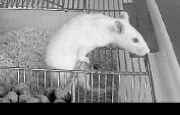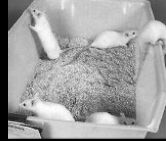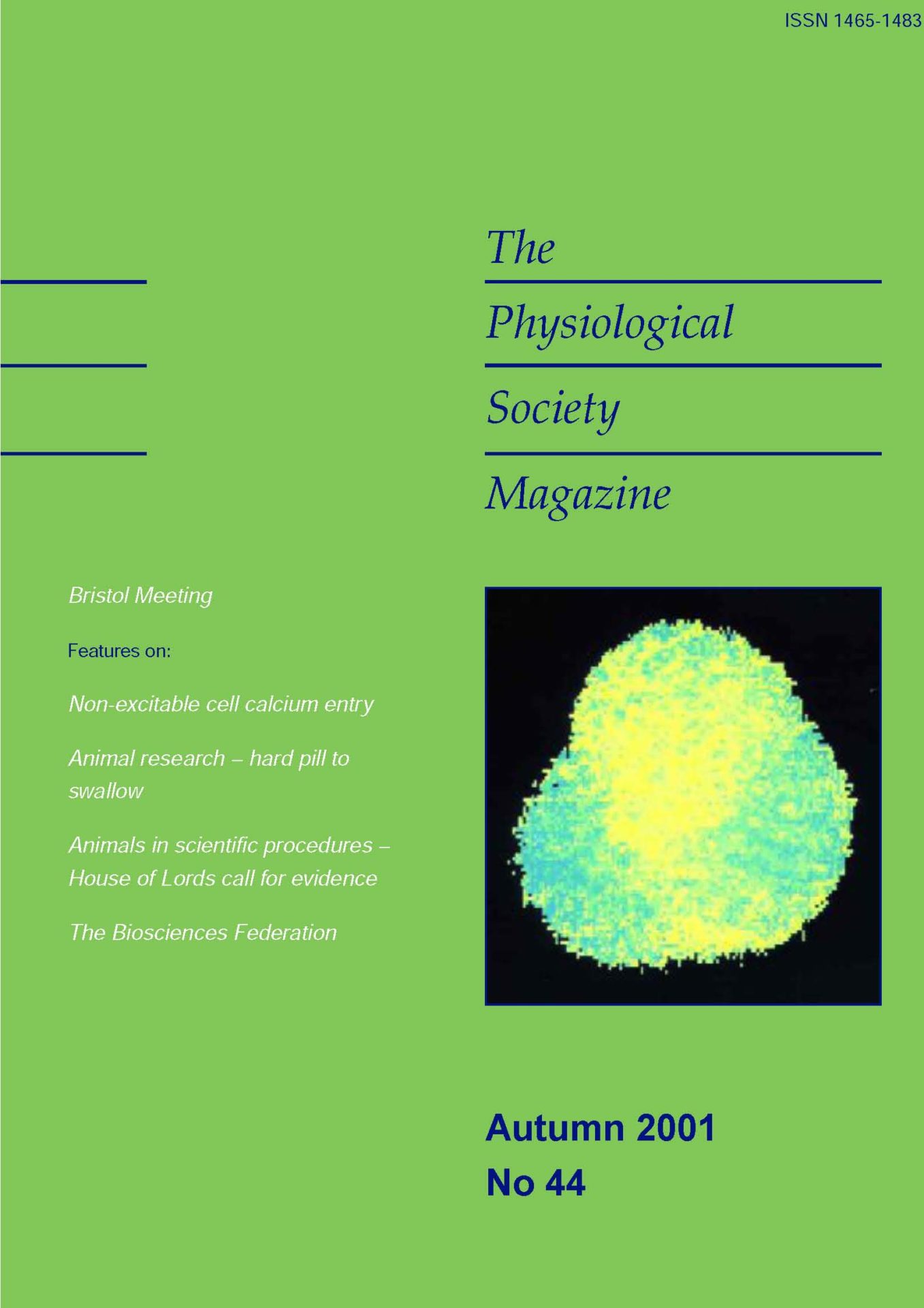
Physiology News Magazine
HOUSE OF LORDS CALL FOR EVIDENCE ON THE USE OF ANIMALS IN SCIENTIFIC PROCEDURES
Features
HOUSE OF LORDS CALL FOR EVIDENCE ON THE USE OF ANIMALS IN SCIENTIFIC PROCEDURES
Features
Maggie Leggett & Peter McWilliam
https://doi.org/10.36866/pn.44.13
A Select Committee has been set up to look at this issue. I notified the membership of the invitation extended to The Society for evidence and would like to thank those Members who contributed. The following letter was based around those responses, with input from the Animal Welfare and Legislation Sub-Committee and the main Committee of the Society. Invitations to give oral evidence will be tendered in September to a selection of those submitting written evidence, or to other relevant bodies. If The Society is invited (either alone or as part of the UKLSC) then a report will appear in the next issue of The Magazine, and also on the website. The response from the UKLSC is available on their website (www.uklsc.org).
Maggie Leggett
Select Committee on Animals in Scientific Procedures
Committee Office
House of Lords
London SW1A 0PW
31 May 2001
Dear Sir/Madam,
ANIMALS IN SCIENTIFIC PROCEDURES CALL FOR EVIDENCE
The Physiological Society is a Learned Society with a membership of approximately 1900. The majority of our members are academics working in Universities or Industry and many are involved in animal experimentation as part of their research. We have consulted with a cross-section of our membership as represented by the Trustees, and would like to contribute to the evidence reviewed by the Select Committee for the House of Lords on animal procedures in medicine and education.
1 What have been the strengths and weaknesses in the operation of the Animals (Scientific Procedures) Act since 1986; how do you consider that legislation on animal procedures needs to be changed?
A strong legal framework is appreciated by researchers since this provides a structure in which the scientific knowledge and moral values can be defended in a democratic society. Although there are inconsistencies across the country in the implementation of the Act, we accept that these are being addressed. A major concern is that the increased bureaucracy has resulted in Home Office Inspectors spending less time in laboratories. Any alteration that would lead to their increased presence would be welcomed by academics, and we therefore welcome the current recruitment. In addition there are some areas in which slight alterations in the Act would lead to greater efficiency, and also there are some changes required to meet the changing face of biomedical science. Members of The Society welcome current initiatives aimed to reduce the time taken for license application, for instance in the granting of licenses to collaborators on short visits to UK laboratories. The following are suggestions for alterations which might be made in order to aid the smooth running of the Act and prepare for the future, whilst not in any way compromising animal welfare.
The first of these suggestions concerns the methods of killing allowed under Schedule 1 to the Act. Certain methods of killing animals require a Home Office Licence under the terms of the Act. However, if an animal is killed by a method described in Schedule 1 then no licence is required and the animal is not counted in the annual statistics reported to Parliament. It would be appropriate to review Schedule 1 with a view to expanding the permitted methods of killing the animals. The impact of this would be to report more accurately the number of animals that have been subject to procedures and not include animals that are merely killed by humane methods.

Increasing the cost of animal experimentation has various consequences. As legislation becomes more time consuming and the cost of using animals escalates, the number used for educational purposes reduces. In many Universities experiments involving the use of animals have disappeared from the curriculum. The result being that an already dwindling expertise in this country may soon disappear altogether. This will not only affect University research and the future UK science base, but will also greatly affect the Pharmaceutical Industry which already has problems filling vacancies requiring these skills. There are a variety of possible solutions to this problem, for instance removing the fee for personal licensees.
2 What scientific developments and changes in public attitudes have occurred relevant to animal procedures since 1986; have researchers and regulators responded to such changes; and do you consider their response has been appropriate?
Public opinion on this issue has been measured many times. The most recent MORI poll showed that the majority of people recognise the need and benefits of strictly controlled animal experimentation such as we have in Britain. However, the vociferous few misrepresent the opinions of the majority, and this has lead to a situation where scientists engaged in such work are concerned for their personal safety. This has largely resulted from the heavy attack that institutions such as Huntington Life Sciences have come under from the anti-vivisectionist lobby. We welcome initiatives already announced which will limit the illegal activities of anti-vivisectionists. In addition more frequent public messages of support from the government might allay the fears of scientists and lay people alike.
3 What are the current effective alternatives to animal procedures; and what alternatives to animal procedures might be developed?

There has been a huge shift in the number of biomedical researchers using “test tube” rather than live animal methods. This is largely because in vitro experiments can be conducted under more stringent and controlled conditions. However, all “test tube” work must eventually be tested against the whole animal response, where one can see an integrated effect as a result of very complex interactions. In addition, the number of scientists using computer models to predict the outcome of experiments has increased dramatically. Whilst informative, any predictions from such work cannot be assumed to be true but must be verified in animals before being applied to humans.
The public demands early diagnosis, treatment and even preventative measures for diseases such as coronary heart disease, stroke and type 2 diabetes. We should not ignore these demands, on either ethical or practical grounds. At present, and for the foreseeable future, animal research is a necessary prerequisite for meeting these demands.
4 How do you consider that demand for animal procedures will develop in the future; and how should the regulatory system respond?

There are several new areas of research which will affect the number and type of procedures performed on animals. Perhaps the most noticeable increase will be in the number of transgenic animals, used for a variety of purposes. In addition there will be more research in the areas of cloning and xenotransplantation.
Finally the post-genomic challenge may also result in an increase in animals used in procedures.
As the public expects the number of animals used in scientific procedures to decrease with the new genetics, any increase in numbers will be viewed with alarm. However, many transgenic animals are as healthy as wild types and procedures such as breeding do not, for these strains, in any way compromise animal welfare. Perhaps, once a strain which is phenotypically neutral has been established, the animals could be counted as mutants and excluded from the annual set of statistics reported to Parliament.
Conclusion
The principles behind the Act are welcomed by the scientific community, and the only frequently voiced complaint concerns the lengthy bureaucracy. The review of the Act is timely, coming at a point where scientific techniques are changing very quickly. The alterations suggested above may help to meet some of these changes, as well as slimming some costly and cumbersome procedures. In this country we can be proud of the effective legislation that protects animals used in scientific experiments. Lengthy delays in obtaining licenses have already driven some research overseas, where the conditions are less strictly controlled. We firmly believe that any move to further restrict animal experimentation in the UK will have a disastrous effect, not only on the economy and the science base, but also in the worldwide standard of care of laboratory animals.
The Society would be pleased to help in any further way possible in the House of Lords review, or on any other matters concerning animal experimentation. I hope that the comments above are useful and helpful.
Yours faithfully,

Professor Peter McWilliam
Chairman for the Animal Welfare and Legislation Sub-Committee
